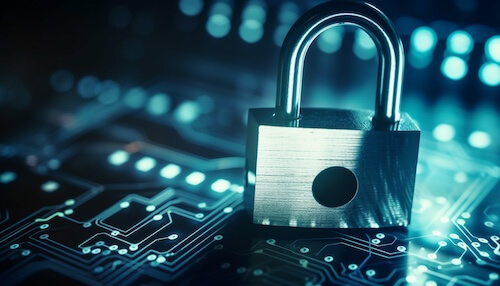- In today’s digital age, our lives are more connected than ever. From banking and shopping to working and socializing, much of what we do occurs online. However, these conveniences come with real risks. Cyber threats, scams, and privacy breaches can affect anyone, often when they least expect it.
Staying safe online isn’t just about protecting your devices; it’s also about safeguarding your personal information, your identity, and your peace of mind.
In this post, we will share important tips and best practices for online safety so you can navigate the digital world with more security and confidence.
How to Stay Safe Online: 15 Cybersecurity Tips from Industry Leaders
In today’s hyperconnected world, staying safe online is more critical than ever. With cyber threats growing in sophistication and frequency, protecting your digital identity, data, and devices should be a top priority. To help you navigate the digital landscape safely, here are 15 expert-backed cybersecurity tips from top industry leaders:
1. Recognise the Risks. Understanding the changing landscape of cyber threats is essential. Cybercriminals employ tactics such as phishing, ransomware, and social engineering to exploit vulnerabilities. Microsoft highlights the need for user education to recognize and reduce these threats effectively.
2. Keep Software Up to Date. Regularly updating your operating systems, applications, and security software is essential. Google recommends enabling automatic updates to quickly address known vulnerabilities and reduce the risk of being attacked.
3. Use Strong, Unique Passwords. Weak or reused passwords are a common way for attackers to gain access. IBM advises creating strong passwords and using password managers to keep unique credentials for different platforms.
4. Enable Multi-Factor Authentication (MFA). Adding an extra layer of security through MFA significantly reduces unauthorized access. Microsoft’s research indicates that MFA can block over 99.9% of account compromise attacks.
5. Be Cautious with Links and Attachments. SPhishing emails often have harmful links or attachments. Google recommends that users verify the authenticity of emails and avoid clicking on anything suspicious to prevent malware infections.
6. Limit Personal Information Shared Online. Oversharing personal details on social media can help cybercriminals create targeted attacks. IBM suggests being careful about the information you share publicly to protect your digital identity.
7. Secure Your Wi-Fi Network It is vital to protect your home or office Wi-Fi with strong encryption and a strong password. Google’s security team recommends using WPA3 encryption and adjusting the default router settings to enhance network security.
8. Back Up Your Data Regularly. Regular data backups can reduce the effects of ransomware attacks and hardware failures. IBM recommends using the 3-2-1 backup strategy: keep three copies of your data on two different types of media, with one copy stored off-site.
9. Use a Virtual Private Network (VPN) on Public Wi-Fi. Public Wi-Fi networks are often insecure, making them vulnerable to cyberattacks. Microsoft recommends using a trusted VPN to encrypt your internet connection when using public networks.
10. Review App Permissions: Mobile apps can request data they don’t need. Google recommends reviewing app permissions regularly and removing access that isn’t necessary to reduce the risk of data leaks.
11. Be Aware of Social Engineering Tactics. Cybercriminals often trick people into revealing confidential information. IBM highlights the need for training to recognize and resist social engineering tactics.
12. Monitor Financial and Online Accounts. Regularly checking your bank statements and online accounts can help you spot unauthorized activities early. Microsoft recommends setting up account alerts to stay updated on any suspicious transactions.
13. Educate Yourself and Your Team. Continuous education on cybersecurity best practices is essential. Google provides resources and training programs to help individuals and organizations stay informed about the latest threats and defense methods.
14. Log Out When You’re Done. Leaving accounts logged in on shared devices can lead to unauthorized access. IBM suggests logging out after each session to keep your account secure.
15. Treat Digital Security as a Lifestyle.e Incorporating cybersecurity habits into your daily routine is essential. Microsoft supports a proactive approach to digital safety and emphasizes its importance just like physical security.
Read Also:
Cybersecurity for Small Businesses: A Complete Guide to Safeguard Your Digital Assets
Why Cybersecurity Matters for Small Businesses?
What are the Cloud security challenges and Solutions?
How to Secure Your Computer From Hackers?
What is Internet Safety? 7 ways to stay safe online
Best Free Antivirus Software In 2025
Conclusion:
Staying safe online is no longer optional. It is essential. With the constant rise in cyber threats, protecting your personal information, devices, and digital identity should be a daily priority. By following best practices, such as using strong passwords, enabling multi-factor authentication, avoiding suspicious links, and keeping software up to date, you can significantly reduce your risk. Remember, online safety starts with awareness and wise decisions. Stay alert, stay informed, and stay safe.

